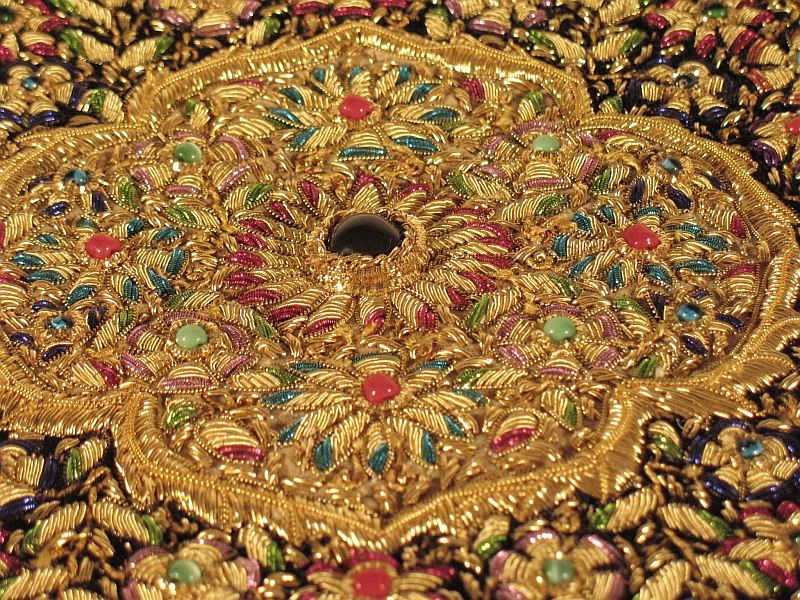===
0144,
7
===

=== |
 |
nishaan : 'Sign; signal; mark, impression; character; seal, stamp; proof; trace, vestige; —a trail; clue ;—place of residence (of a person), whereabouts; ... —note; index; type, emblem, device; order, badge; —ensign, flag, banner, standard, colours; —family arms, armorial bearings'. (Platts p.1139)
u;Raanaa : 'To cause to fly; to fly, let fly; to throw or toss up as a pigeon, or a coin; to set free, uncage; to cause to move rapidly or swiftly, to drive hard a horse, etc.; to fly away with; to run or make off with; to make away with, to rob, plunder, despoil of; to ravish; to cause to vanish or disappear'. (Platts p.903)
FWP:
SETS == GESTURES
MOTIFS
NAMES
TERMS == DRAMATICNESSThis is a verse to die for, isn't it? SRF's unpacking of some of the possibilities and implications is a tour de force in its own right. The verse generates a set of haunting complexities, but they're evoked by an almost soothingly simple little bit of business: the speaker meditates, perhaps thinking aloud; and a breeze lifts a swirl of dust into the air. Since this is a strictly non-verbal gesture (and perhaps not even one that's meant to answer the question), any meaning that we give it can only be speculative.
In fact there's one more possibility that SRF hasn't enumerated: that the two events have nothing to do with each other. The natural universe is unresponsive. When we ask a question, we get no answer; it's just 'nature naturing' as usual. The breeze blowing dust around in the background means nothing at all, unless we are desperate for metaphors (which of course we may well be).
Compare Ghalib's equally brilliant vision of what happens to the dust of dead lovers:
G{61,7}